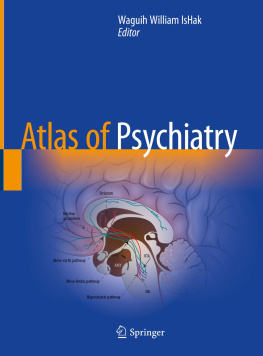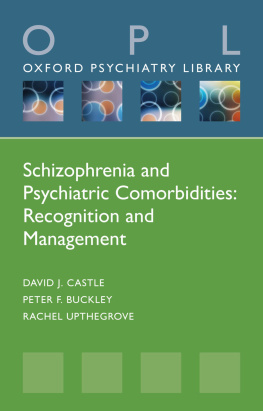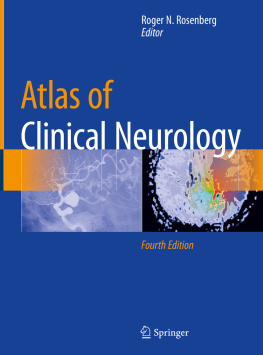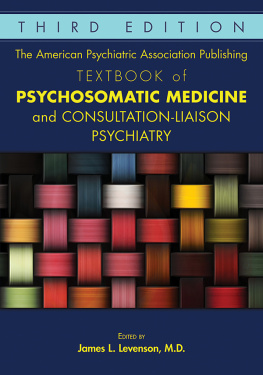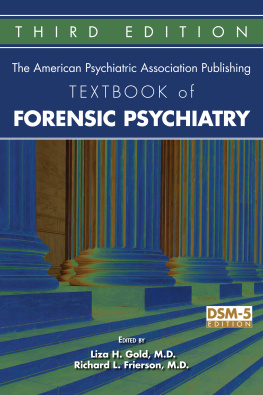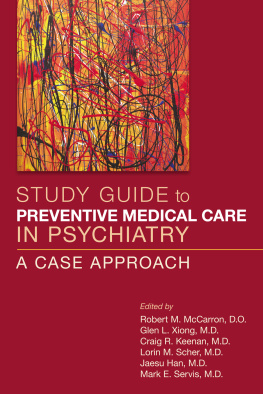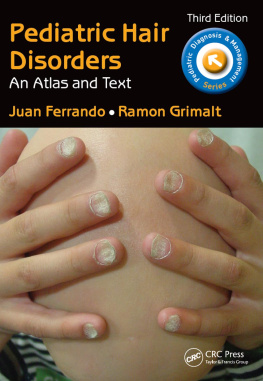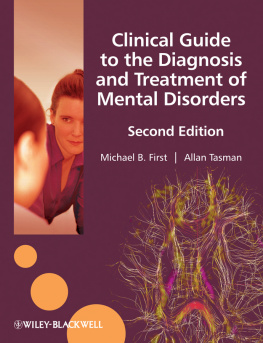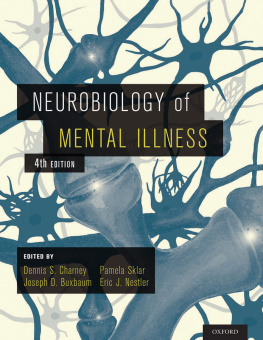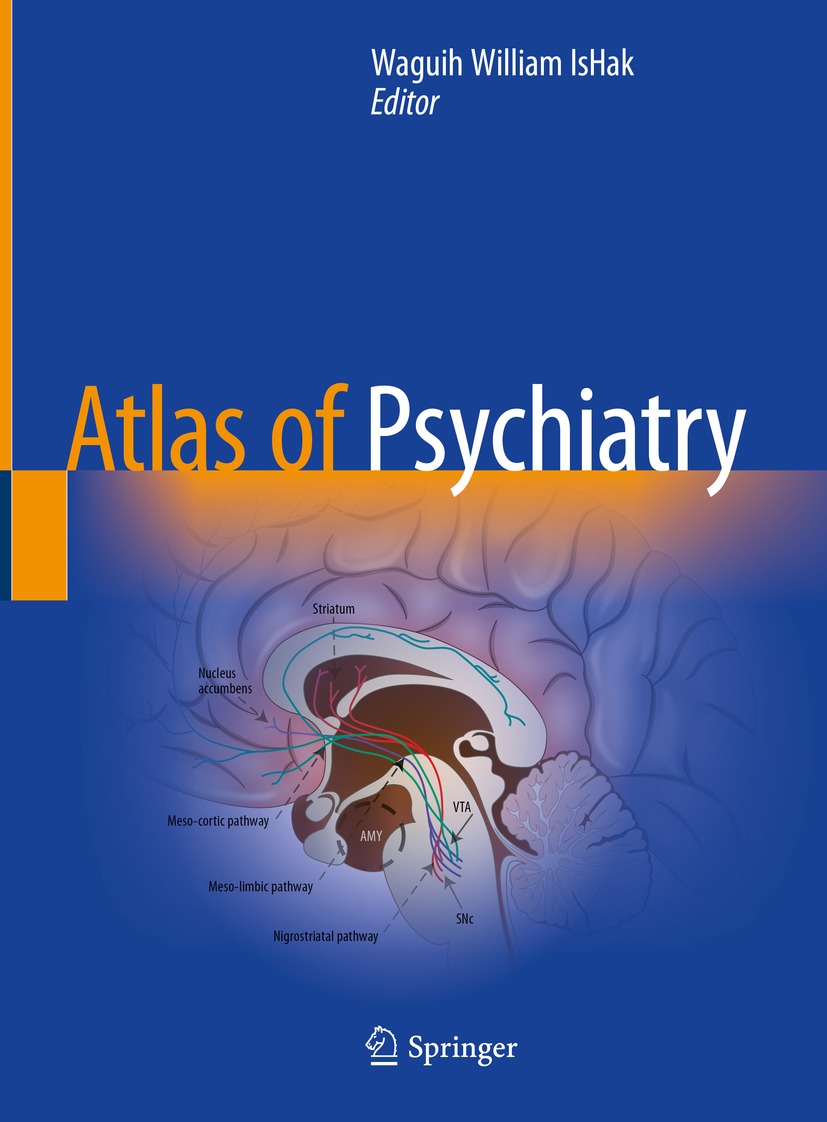Editor
Waguih William IsHak
Atlas of Psychiatry

The Springer logo.
Editor
Waguih William IsHak
Cedars-Sinai Health System, Department of Psychiatry and Behavioral Neurosciences, University of California Los Angeles, David Geffen School of Medicine, Los Angeles, CA, USA
ISBN 978-3-031-15400-3 e-ISBN 978-3-031-15401-0
https://doi.org/10.1007/978-3-031-15401-0
Springer Nature Switzerland AG 2023
This work is subject to copyright. All rights are reserved by the Publisher, whether the whole or part of the material is concerned, specifically the rights of translation, reprinting, reuse of illustrations, recitation, broadcasting, reproduction on microfilms or in any other physical way, and transmission or information storage and retrieval, electronic adaptation, computer software, or by similar or dissimilar methodology now known or hereafter developed.
The use of general descriptive names, registered names, trademarks, service marks, etc. in this publication does not imply, even in the absence of a specific statement, that such names are exempt from the relevant protective laws and regulations and therefore free for general use.
The publisher, the authors, and the editors are safe to assume that the advice and information in this book are believed to be true and accurate at the date of publication. Neither the publisher nor the authors or the editors give a warranty, expressed or implied, with respect to the material contained herein or for any errors or omissions that may have been made. The publisher remains neutral with regard to jurisdictional claims in published maps and institutional affiliations.
This Springer imprint is published by the registered company Springer Nature Switzerland AG
The registered company address is: Gewerbestrasse 11, 6330 Cham, Switzerland
To my love Asbasia (Hanan) Mikhail-IsHak, MD, FACEP, our sons William and Michael, our parents William Makram IsHak, MD, Nawara Yacoub Dawoud-IsHak, MD, Mrs. Aziza Mikhail and Mr. Aboelkhair Mikhail, and our siblings Rafik William IsHak, MD, FRCS, Albert Mikhail, MD, and Mrs. Lamia Maalouf, for their inspiration, encouragement, and love.
Foreword
The Atlas of Psychiatry is the first of its kind in psychiatry, currently the only discipline that does not have a comprehensive atlas for visual learning about the whole field. The Atlas has been developed for clinicians, trainees, and students who need a visual guide describing basic, clinical, and scholarly information. It is a large full-color hardback with extensive drawings and clinical images, printed on glossy paper and also available in various electronic formats. The audience is a wide-scope readership adopting a user-friendly method to familiarize with psychiatry and psychiatric disorders, in contrast to the traditional text-only-based volumes.
The Atlas of Psychiatry chapters have been written by world-class experts in the field, in addition to a number of chapters that Dr. IsHak has written with his team on a variety of topics. Each chapter includes figures, illustrations, and tables covering each psychiatric disorder, with images and tables potentially describing epidemiology, etiology, pathophysiology, phenomenology, and treatment. The psychiatric disorders are classified using the latest diagnostic classification systems, with images created or curated and described by authors in each scientific area and diagnosis. Experts in each aspect of psychiatry and psychiatric disorders have synchronized the text and imagery content with the mission of delivering a clear and lucid explanation of each topic. The Atlas of Psychiatry is an innovative and important contribution to the field.
Maurizio Fava
Preface
The Atlas of Psychiatry is a visual guide intended for a diverse readership looking for a visual method to learn cutting-edge, and scholarly information about psychiatry and psychiatric disorders. The goal is to inform the reader by describing basic science and theory, as well as clinical and therapeutic information using imagery and text to show and tell about the field.
We hope that the Atlas will be useful for physicians of all specialties especially internal medicine, primary care, family medicine, psychiatry, and neurology, health care professionals especially nurses, nurse practitioners, physician assistants, and medical assistants, mental health care professionals especially psychologists, social workers, psychotherapists, substance use counselors, and spiritual counselors, trainees especially medical students, residents, fellows, and graduate students, researchers, as well as hospital, clinic, and treatment programs staff especially leaders, middle management, and program personnel.
Chapters ends the book with a futuristic collection of directions where the field could be following in the next decade.
This Atlas was only made possible because of so many supportive and nurturing individuals for whom this editor is eternally grateful. I truly hope that the Atlas of Psychiatry will be a helpful and useful contribution.
Waguih William IsHak
Los Angeles, CA
Acknowledgments
I am deeply grateful for supportive and nurturing figures throughout my career, and it gives utmost pleasure to acknowledge them in the Atlas of Psychiatry. I begin with William Makram IsHak, MD (may he rest in peace) who instilled psychological mindedness and reading the master pieces in psychological sciences, then Cairo University amazing Professors Yehia El Rakhaway, Emad Hamdy Ghoz, Tarek S. Gawad, Abdelhamid Hashem, Samir Aboelmagd, Nahed Khairy, Zeinab Nasser, Zakaria Halim, Salwa Erfan, and Soad Moussa, followed by the Milieu Therapy psychiatry masters: Professors Refaat Mahfouz, Ahmed Abdallah, Yehia Jaffer, and Hassib El-Defrawi, to NYUs incredible Professors Robert Delgado, Brian Ladds, Zebulon Taintor, Eric Peselow, Adam Wolkin, Leonard Adler, Martin Kahn, Richard Hanson, Kim Hopper, David Nardacci, Martin Geller, Asher Aladjem, Samuel Slipp, Richard Oberfield, Howard Silbert, Henry Weinstein, Howard Welsh, Murray Alpert, George Nicklin, Bertina Baer, and Bruce Rubenstein.
I am very thankful for the phenomenal care of Samy Rizk, MD, and Mrs. Mary-Terez Rizk, the life-changing fortunes by Norman Sussman, MD, and Nancy Hanna, MD as well as the priceless mentorship of Professors Carol Bernstein, Manuel Trujillo, Virginia Sadock, and Benjamin Sadock. I continue to cherish the invaluable advice and career opportunities from Professor Shlomo Melmed Cedars-Sinais Dean of the Medical Faculty, Peter Panzarino, MD, Thomas Trott, MD, PhD, Saul Brown, MD, PhD, and Mark Rappaport, MD, and continue to value the precious guidance from Professors Lloyd Sederer, Sherwyn Woods, Laura Roberts, Robert Cohen, Robert Pechnick, Daniel Berman, Russell Poland, Fawzy I. Fawzy, Thomas Strouse, George Awad, Edward Feldman, Rebecca Hedrick, and especially Bruce Gewertz, MD Cedars-Sinais Surgeon-in-Chief, as well as Professor and STAR*D PI A. John Rush, Nobel Laureate Louis Ignarro, and Harvard Mass Generals Psychiatrist-in-Chief Maurizio Fava, for having the most profound impact on my career involvements. I remain appreciative of Itai Danovitch, MD unwavering and genuine support of all my professional endeavors at Cedars-Sinai.

